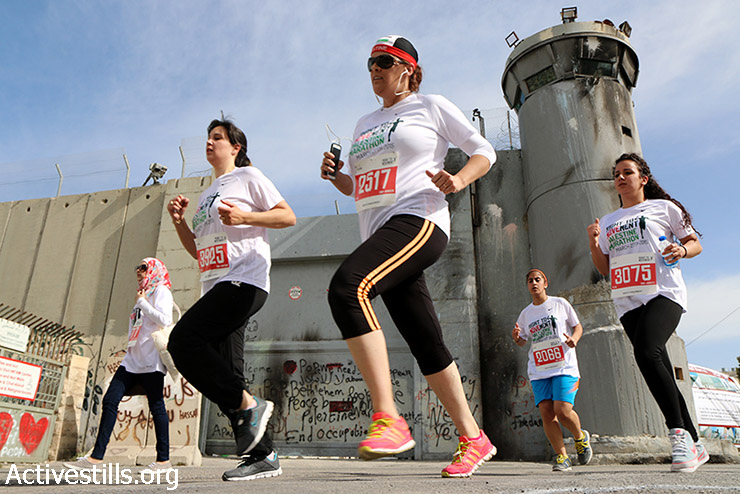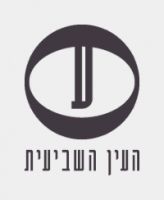It turns out that only threatening measures by the Palestinian Authority make the Israeli media notice Palestinian athletes.
By Asaf Marziano

A “blind spot” is a kind of built-in flaw in the human eye. This spot exists for all of us, meaning that our view of the world will always lack that certain spot. Because our mind has mechanisms that allow us to complete the picture based on prior knowledge about the world, we are able to see a complete, continuous picture. It is understood that this picture will match what we know about the world, and not the the picture of the world as it really is.
On Friday March 27, Bethlehem held the third annual Palestine Marathon. Over 3,000 runners participated, including Palestinians and Israelis. However, many Gaza runners were not allowed to exit the Strip and participate. Since Bethlehem does not have any 42.2-kilometer route that does not include an Israeli checkpoint or roadblock, the marathon organizers were resigned to designing a circular route. Aside from +972, it’s Hebrew sister site Local Call and Haaretz, which reported on the event from a political perspective, it was not covered by any other Hebrew-language Israeli media outlet, especially not those that cover sports.
Three days after the marathon, Palestinian Football Association (PFA) chief Jibril Rajoub called on FIFA to suspend Israel from international competition for preventing Palestinians from Gaza from taking part in sporting events in Gaza, among other things. The incident was covered by most of the sports sections in Israel, although none of them provided a real explanation or even general background for the PFA’s claims, which were presented as political trickery. However, despite the proximity between the marathon and Rajoub’s call, the former was not mentioned. I tend to believe that these reporters really didn’t know about the event, but shouldn’t they have known in the first place?
When Israeli tennis star Shahar Pe’er participated in a tournament in Dubai, despite the difficulties placed on her by the organizers, the incident was widely discussed in the sports media. The media debate was mostly based on the agreement that sport must be a-political. Therefore, how can it even be possible that a tennis player is prevented from participating in a tournament solely because she is Israeli? After all, she has been training all year long, and what do politics have to do with sports? Her future depends on this!
However, when dozens of Palestinian athletes in Gaza train all year round and are not allowed to take part in sporting events in Israel or the West Bank, the media ignores them precisely because they are from Gaza. All of a sudden, sports and politics go hand-in-hand, and their political future becomes their personal issue. Between the outcry against the tournament organizers in Dubai and ignoring Gaza athletes lies the incredulity of the sports media in Israel regarding Rajoub and FIFA.
It turns out that the Israeli media’s blind spot is located exactly where we stop being the oppressed and become oppressors — the moment in which the media must judge our actions the same way it judges those taken against us. This moment, which contains a roll-reversal, is often hidden from the media’s view. The ability of our mind to fill in that blind spot is based on prior knowledge, a range of assumptions that paint the whole picture, as if that dark spot never really existed.
Read this article in Hebrew on The 7th Eye.


